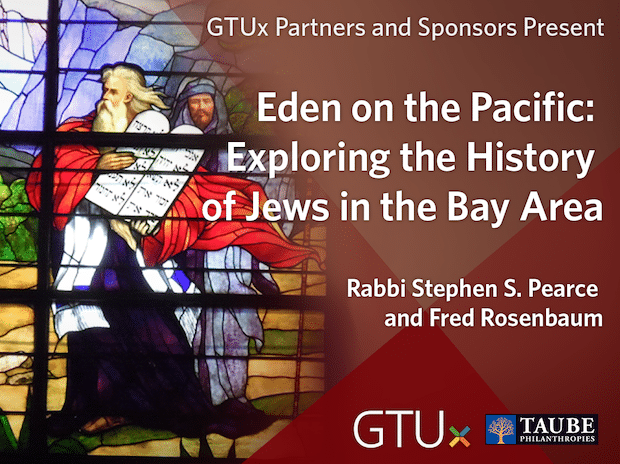Originally presented as part of the Richard S. Dinner Center for Jewish Studies’ 2024 spring conference entitled Life and Death, this lecture gives voice to the overlooked ethical writings of Yitskhok Bernshteyn.
Originally presented as part of the Richard S. Dinner Center for Jewish Studies’ 2024 spring conference entitled Life and Death, this lecture explores the problematic history and memory of the Jewish historian Josephus—born Yosef ben Matityahu and later renamed Flavius Josephus—during the time of the Great Jewish Revolt.
Originally presented as part of the Richard S. Dinner Center for Jewish Studies’ 2024 spring conference entitled Life and Death, this lecture explores the formation of literary modernity in Hebrew and Yiddish literary sources and offers an alternative perspective on why and how these established literary rules should be broken.
Originally presented as part of the Richard S. Dinner Center for Jewish Studies’ 2024 spring conference entitled Life and Death, this lecture explores the political dimensions of how we characterize mystical experience and demonstrates how the lens of Jewish history sheds crucial light on the history of that discourse.
Originally presented as part of the Richard S. Dinner Center for Jewish Studies’ 2024 spring conference entitled Life and Death, this lecture offers a greater understanding of the societal mechanisms around settler colonialism that create violence on the frontier of settlement.
Originally presented as part of the Richard S. Dinner Center for Jewish Studies’ 2024 spring conference entitled Life and Death, this lecture is a moving testament to one scholar’s personal confrontation with mortality.
Originally presented as part of the Richard S. Dinner Center for Jewish Studies’ 2024 spring conference entitled Life and Death, this lecture presents notes from the field on the recent memorialization of historical Jewish culture and heritage sites in the Islamic world.
Originally presented as part of the Richard S. Dinner Center for Jewish Studies’ 2024 spring conference entitled Life and Death, this lecture explores the Jewish lament tradition in historic and present literary texts through the current lens of the conflict in Israel and Gaza.
Originally presented as part of the Richard S. Dinner Center for Jewish Studies’ 2024 spring conference entitled Life and Death, this lecture examines how the hope of the future fueled Jewish education, particularly in times when the present was particularly bleak.
Originally presented as part of the Richard S. Dinner Center for Jewish Studies’ 2024 spring conference entitled Life and Death, this lecture offers an argument for the restoration of the household as part of a crucial trifecta in the formation and cultivation of Jewish life.
Originally presented as part of the Richard S. Dinner Center for Jewish Studies’ 2024 spring conference entitled Life and Death, this lecture uses the legacy of Olympic swimmer Alfred Nakache as a lens for modern Sefardic cultures and a narrative of defiant survival.
A special CJS and CIS lecture featuring a conversation with Santiago Slabodsky on contesting the narrative of “eternal Jewish-Muslim enmity” and its relation to coloniality.
Explore the complex interrelation of texts, bodies, space, and objects in Jewish life and history.
In this fascinating talk with Rabbi Stephen S. Pearce, Rabbi Emeritus of Temple Emanu-El in San Francisco, and Fred Rosenbaum, GTU lecturer and author of Cosmopolitans: A Social and Cultural History of Jews in the Bay Area, viewers are invited to take a walk through the history and contributions of Jewish life and culture in the Bay Area as it has evolved for nearly two centuries.
Presenters include leading scholars and theologians in Jewish Studies”
Mara Benjamin explores how ancient text and ritual can work in tandem with evolving environmental concerns and become responsive to the reality of living in a world of climate change and environmental degradation.
Joy Ladin reimagines the divine and human binary relationship from a trans and feminist perspective to offer a more intimate understanding of God.
Ariel Mayse awakens ancient text to refine the understanding of Jewish law to reflect contemporary moral and ethical values.
















